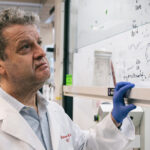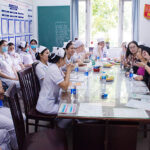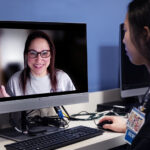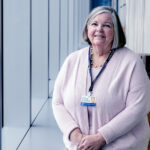Fifty years as a Boston Children’s nurse
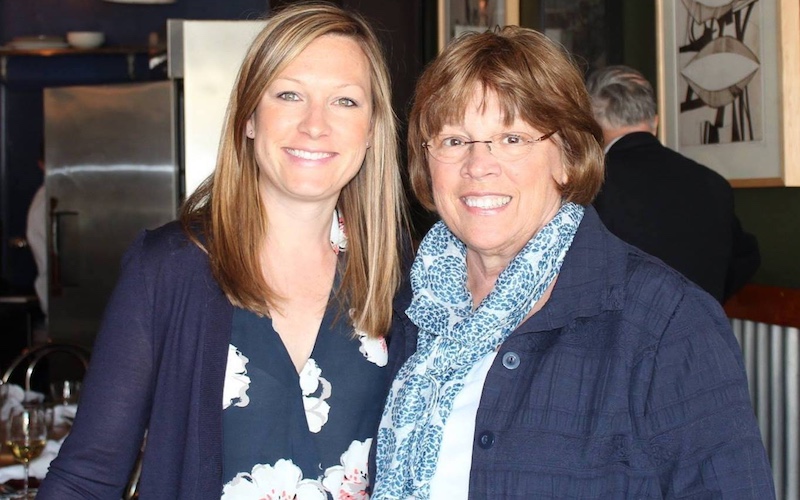
Mary Ellen Pierce, RN, MS, CPN, has been a nurse at Boston Children’s Hospital since 1969. She currently works in the Perioperative Care Coordination Clinic.
I’ve been a nurse at Boston Children’s Hospital for almost 50 years, but this hospital has always been part of my life. When I was a kid, my father would tell stories of having his appendix removed at age 10. He remembered being at Boston Children’s for a month and his parents only being allowed to visit him on Sundays. Today, things are so different. We really partner with parents.
From nursing student to seasoned expert
In the 1960’s, nursing education was mostly hospital-based and Boston Children’s was the only one in the country specializing in pediatrics (the nursing school was right where the family parking garage is now; it closed in 1978). When I was 16, my high school visited for career day, and that was it. As soon as I walked in the door, I knew I wanted to work there someday. Forever after that, whenever my family would come to Boston, I’d make them drive down Longwood Avenue so I could look at the building.
After three calendar years of nursing school at Boston Children’s, I was hired in 1969 on an infant surgical floor and subsequently worked in Post Anesthesia Care Unit, where I remained for more than 25 years. After getting my BSN in 1996, I got a job in what is known now as Perioperative Care Coordination Clinic. I see myself as a lifelong learner and went back to school a second time getting my Master’s Degree in Nursing in 2005. I retired in 2014, but that only lasted a few months; I have been working per diem a few days a month since. Every month, I say, “This is my last month,” and then I buy 10 more parking passes and keep going.
Every month, I say, ‘This is my last month,’ and then I buy 10 more parking passes and keep going.
This place is like family to me. I love the patients and I love my colleagues. My sister, Sally Kacprowicz, BSN, RN-BC, CPN has worked here for 30 years and my daughter, Sarah Pierce Thomas, MHA, has been Cochlear Implant Program Coordinator since 2001. Up until a couple of years ago there were five people from my family working here, so we often joke that it is the “family business”.
A leader in preoperative care
Since 1996, I’ve been working in the Perioperative Care Coordination Clinic, run by the Department of Anesthesiology, Critical Care and Pain Medicine, preparing children for upcoming surgery. I review records of children having surgery to ensure their health status is stable enough for anesthesia and surgery. I’m the one that actually loves to wade through a 100-page fax making sure we have all the information we need to safely proceed.
I’m the one that actually loves to wade through a 100-page fax making sure we have all the information we need to safely proceed.
Many of these families have travelled from all over the world and have had treatment at multiple other places and they are desperate. They see we’re ranked as the #1 children’s hospital by U.S. News and World Report and expect the best, so I always try and make my contact with them as positive as possible. When I call them prior to surgery to go over the paperwork they’ve sent us, I make sure they feel like someone has paid attention to them before they have even hit the door. I always say to them “We do our homework here.”
Our Perioperative Care Coordination Clinic has become a role model for other pediatric institutions on how to set up their preoperative processes. Many institutions don’t have a well-developed preoperative process and seek guidance from us. One of my most fulfilling experiences was having published a paper on our unique approach and having a team come for the day from a New York children’s hospital to learn how we run our program.
Advice for new nurses
Over the years, nursing has evolved from being more technically oriented to now requiring much more critical thinking from the nurse. My advice for newer nurses:
- Focus on mentorship. Take mentoring from wherever you can get it and then turn around and mentor someone else. I like to think that’s what people know me best for. Nursing, especially in perioperative care, is a very nurturing environment.
- Be prepared to problem solve. One of my mentors said that I would use everything I know in this job and that was really true. I use my knowledge of the systems, my understanding of human development and how the parents are feeling, my expertise on the surgery and the physiology involved.
- Find balance. This is inherently a stressful job, so make sure you have something to help you blow off steam. Find a passion outside of work, whether it’s your kids, grandkids, hobbies, etc. I have a 110-year-old house that keeps me busy, and several hobbies, including knitting (I make and donate hats for the NICU babies) and several other crafts.
I have witnessed countless medical milestones over the years, such as the first kidney transplant. Treatments get better and better every day and the majority of our patients get better and go home. Nowadays, kids go home on the same day for things that used to require a month-long stay. It was always my dream to work at Boston Children’s Hospital and I have always found it a very hopeful place for our patients.
Learn more about the Department of Anesthesiology, Critical Care and Pain Medicine.
Related Posts :
-

A safe, pain-specific anesthetic shows preclinical promise
All current local anesthetics block sensory signals — pain — but they also interrupt motor signals, which can be problematic. For example, ...
-

“Observe. Be open.”: How Boston Children’s nurses are changing the future of global health
Ashley Birch, MSN, CPNP, a Boston Children’s pediatric nurse practitioner and Global Nursing fellow, didn’t expect a trash ...
-

Nurse-led innovations: A virtual-nursing pilot helps nurses thrive
It was night shift on the 9E Inpatient Medical Unit and Marisol Hernandez, BSN, RN, CPN, was helping another nurse ...
-

In a thriving gene therapy program, nursing leadership is the driving force
Gene therapy was made possible by decades of technological advances. But to execute gene therapy at scale? That would not ...


